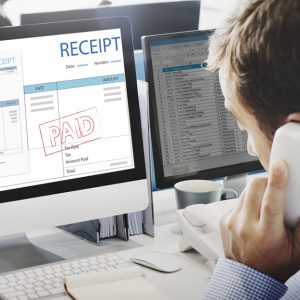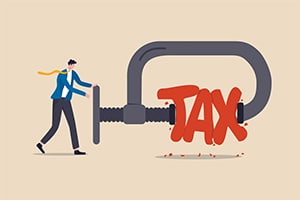
Business Advisory Services
Everything you need to help you launch your new business entity from business entity selection to multiple-entity business structures.
Hey - Our site just had a makeover and we are sorting through the hiccups!
Hey - Our site just had a makeover and we are sorting through the hiccups!

Everything you need to help you launch your new business entity from business entity selection to multiple-entity business structures.

Designed for rental property owners where WCG CPAs & Advisors supports you as your real estate CPA.

Everything you need from tax return preparation for your small business to your rental to your corporation is here.

Posted Wednesday, July 8, 2020
Table Of Contents
We have written several different articles about the home office deduction, how it works and the value of it (efficacy) including tax home definitions. As such we have created the home deduction mini portal which is a collection of snippets from other content on our website.
To be considered a home office, a space has to be used exclusively and regularly for business purposes. Exclusive is self-explanatory and basically means you cannot share the space for personal purposes such as a bedroom or a closet. Regular is much tougher to define, and is certainly subjective. Selling candles one day a month is probably not going to cut it. Selling candles one day a week? Who knows. Three days a week?
There are two methods for calculating the home office deduction; actual and simplified. Simplified home office deduction, as the name suggests, is simple. It is a safe harbor of sorts where the IRS gives you $5 per foot up to 300 square feet for a maximum deduction of $1,500. You read more about the simplified home office deduction on the IRS website.
The actual method is done by calculating a business use percentage of your home, typically based on square footage or room count, and deducting the pro-rated expenses against your business income. There are some devils in the details such as denominator adjustments for attics, garages and unfinished basements. This percentage is then applied to your mortgage interest and property taxes (or monthly rent should you rent), utilities, maintenance, repairs, etc. becomes an Accountable Plan reimbursement if you have an S Corp or a partnership, or it becomes a deduction on Form 8829 along with Schedule C.
As far as we see it, you cannot use the simplified method on conjunction with an Accountable Plan reimbursement, only actual expenses.
We often get the question What is my tax home? It is a tricky question… and it is one that a lot of taxpayers are very interested in since your tax home is where you will generally pay taxes and commuting to your tax home is not deductible, so it becomes critical in the home office deduction conversation. There are three primary applications of the tax home definition and location.
Our Tax Home article talks about this including the 50-mile rule and two good tax court cases: Barrett v. Commissioner, Tax Court Memo 2017-195 about a video producer living in Las Vegas and traveling to Washington, D.C. And, Bigdeli v. Commissioner, Tax Court Memo 2013-148, where the taxpayer was an oral surgeon living in Pennsylvania who traveled 130 miles to New York where he worked at a dentist office. [More]
We do not believe home office depreciation is a reimbursable expense given the code because it fails the substantiation threshold. First, your home office as part of real property typically does not depreciate unless a nuclear waste dump buys the neighboring lot. In other words, you cannot prove nor support depreciation on real property since it historically doesn’t typically exist.
Second, if you did have depreciation, how do you substantiate that this is a real expense? The check you wrote for the home office was truly a check you wrote for a personal residence whose primary function was to be a personal home and not a business asset.
At the end of the day, this is our opinion. There is nothing in the code that specifically prohibits the reimbursement of depreciation. Theoretically we believe you cannot be reimbursed for depreciation. Practically we say “Yeah, sure, sounds great.” And, we are huge fans of home office deductions. The real meat of the reimbursement comes from the mileage reimbursement or actual automobile expenses since your commute is now from the bedroom to the basement, and every mile driven is a business mile. We are just not big fans of reimbursing for depreciation. [More]
We’ll split home office maintenance as it relates to the home office deduction into interior and exterior. Interior is fairly straightforward where the repairs and maintenance such as cleaning, service repairs (like furnace upkeep, roof repairs), etc. are deducted on a pro-rated basis. If you operated a salon out of your home, and the salon sink needed repair this could be considered 100% deductible and not prorated like general maintenance (what the IRS calls direct and indirect expenses).
When we think of exterior maintenance, we’re thinking about things like landscaping, window washing, and other services you might undertake to present and maintain a certain image of your home. This might be important depending on the nature of your home office. Basically, if you are inviting customers to your home office, the IRS and the Tax Court allow you to deduct exterior maintenance expenses.
This post expands on this and lists out a handful of tax court cases. One is Rhoads v. Commissioner T.C. Memo 1987-335 where a dentist and his wife, a dental hygienist, who shared their living space with their dental practice. Their three-story home devoted one third, the first floor, entirely to the dental practice. The Rhoads were able to provide an invoice for window washing for the entire dwelling, but out of the 45 windows, the dental facility only had 7 windows, therefore the Tax Court declared they would be allowed an allocation of 7/45ths of the invoice. That was the windows component.
They were also granted 33% of the landscaping deductions based on the business use of the home (three floors, one floor was the dental practice, 1/3 is 33%, even in Canada). However, the taxpayers were unable to present credible testimony or documentation regarding the remaining outside services to which they would have been entitled as part of the home office deduction. Where have we heard that before? Good tax logic, bad record keeping.
So, can you deduct the exterior maintenance of your home as part of your home office? The answer is Yes, but there are some rules. [More]
We encourage businesses to implement an Accountable Plan which allows employee owners to turn in expense reports for the business use of personal assets. What’s the big deal? The big deal is that the IRS considers any reimbursement to be taxable income unless a proper Accountable Plan is adopted and implemented. There are three types of expenses-
The mixed use expenses commonly are home offices, cell phone, internet and mileage. The most elegant way, and the way we and the IRS prefer, is that you write a check or a do a transfer from your business checking account to your personal checking account in the amount of the reimbursement. Think of you and your business as separate entities, since they truly are. And if you worked for another business that you did not own, the business would write you a check for the amount of expenses you paid personally. Same thing here.
So, the home office deduction, for example, is truly deducted on the business entity tax return (less scrutiny) and since it is a reimbursement, it is not considered taxable income to you personally. Accountable Plan reimbursements are near-mandatory for all small business owners. [More]
For tax preparation purposes, you can either submit an Accountable Plan reimbursement form (see above) or we can synthesize this data from our Home Office Deduction Worksheet digital form. Click on the button below for our secure digital form to help organize your home office deduction. You may also download our Accountable Plan Excel template.
Table Of Contents

Tax planning season is here! Let's schedule a time to review tax reduction strategies and generate a mock tax return.

Tired of maintaining your own books? Seems like a chore to offload?
Did you want to chat about this? Do you have questions about Home Office Deduction Mini Portal? Let’s chat!
The tax advisors, business consultants and rental property experts at WCG CPAs & Advisors are not salespeople; we are not putting lipstick on a pig expecting you to love it. Our job remains being professionally detached, giving you information and letting you decide within our ethical guidelines and your risk profiles.
We see far too many crazy schemes and half-baked ideas from attorneys and wealth managers. In some cases, they are good ideas. In most cases, all the entities, layering and mixed ownership is only the illusion of precision. As Chris Rock says, just because you can drive your car with your feet doesn’t make it a good idea. In other words, let’s not automatically convert “you can” into “you must.”
Let’s chat so you can be smart about it.
We typically schedule a 20-minute complimentary quick chat with one of our Partners or our amazing Senior Tax Professionals to determine if we are a good fit for each other, and how an engagement with our team looks. Tax returns only? Business advisory? Tax strategy and planning? Rental property support?

Everything you need to help you launch your new business entity from business entity selection to multiple-entity business structures.

Designed for rental property owners where WCG CPAs & Advisors supports you as your real estate CPA.

Everything you need from tax return preparation for your small business to your rental to your corporation is here.


